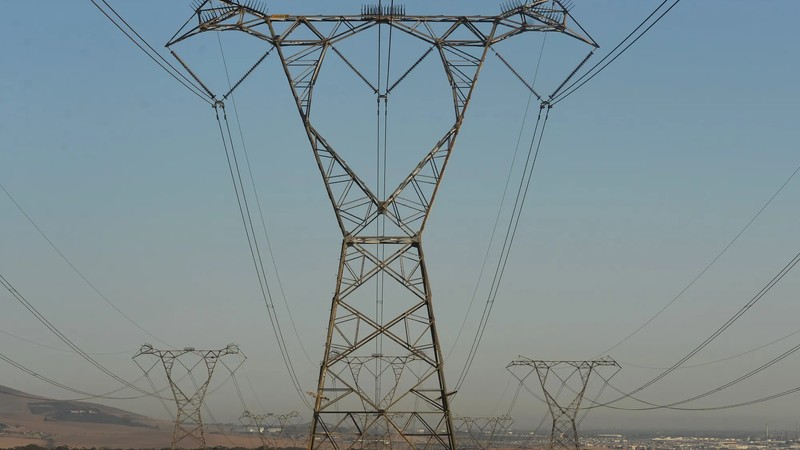South Africa’s electricity and energy system is foundational to unlocking inclusive development and economic opportunities. Energy access defines the boundary between marginalisation and participation, between poverty and potential. It powers schools, clinics, and businesses. It drives growth and dignity. Yet, even after loadshedding has subsided, millions of South Africans will still live with unreliable, inadequate, or unaffordable electricity, undermining the promise of a fair and prosperous society.
The Presidential Climate Commission’s (PCC) report, the Net Zero CO2 Emission Pathways (2024) outlines the multidimensional nature of South Africa’s energy crisis. While coal remains the dominant source of electricity generation, the fleet is ageing, technically unreliable, and environmentally unsustainable – responsible for over 40% of South Africa’s total Greenhouse Gas (GHG) emissions. And, although coal is economically irreplaceable in the short term, its future is limited, and its continued dominance constrains both development and decarbonisation.
Compounding this, South Africa faces a looming “gas cliff,” yet there are mixed signals on the transition to new gas infrastructure in a way that balances short-term power needs with long-term climate goals. The persistence of energy poverty remains a moral and developmental challenge. Millions of South Africans still lack access to consistent, clean, and affordable electricity. Without affordable and reliable energy, economic reindustrialisation and job creation remain out of reach.
The annual electricity tariffs hikes continue to bite like our winter, squeezing already vulnerable households and small businesses under strain. Municipalities — many of which depend heavily on electricity revenue — are caught in a fiscal trap, struggling to maintain financial sustainability while ensuring basic service delivery. Environmental and health impacts and costs continue to escalate, especially in the coal regions where the PCC’s Co-Benefits of Net Zero Pathways Technical Report (2024) quantifies the opportunity of addressing the devastating impacts of poor air quality.
Under a high mitigation pathway, the co-benefits of reducing fossil fuel GHG emissions would also reduce associated sulphur dioxide, nitrogen dioxide and particulate matter emissions, potentially avoiding over 74 000 premature deaths by 2050 for sulphur dioxide reductions alone. Addressing this requires more than technical fixes, but structural reforms that redress inequality and unlock new pathways for inclusion and participation, in the energy economy.
South Africa will need sustained levels of coordination, backed by political will and administrative coherence, across key departments—including Finance; Mineral Resources & Energy, Transport, Public Enterprises, Trade, Industry & Competition, and Forestry, Fisheriesand Environment—to make progress.
A regularly updated and unified energy vision is essential for unlocking the full potential of a just energy transition. South Africa has a narrow but powerful opportunity to use its energy choices to reduce poverty, inequality, and unemployment. Given these realities, South Africa needs a clear, coherent, and courageous response – with fiscal response and policy choices reflective of the urgency of these challenges.
With the right decisions on infrastructure, supply mix, or investment—there is potential to create jobs, expand access, and support vulnerable communities. But not all choices will yield clear benefits; some may come at high costs without meaningful return. Timely, evidence-based action is essential to ensure the transition delivers real development gains rather than exacerbating inequality.
While there are promising signals, such as allocations for grid expansion, growing support for the independence of the transmission company, and steps toward a more open electricity market—progress remains uneven and fragmented. We need a rapid, well-coordinated expansion of the electricity grid to enable new generation capacity, especially from clean and quick-to-deploy sources like wind, solar, and batteries.These technologies are now far cheaper than new coal or gas and offer the least-cost pathway to system stability and sustainability.
Reforms to the electricity market must ensure efficient dispatch, fair pricing, and open access,while also enabling choice and flexibility for consumers. At the same time, incentives must be designed not only producers but to ensure poor and vulnerable households have access to basic electricity. Energy access should be treated as a development imperative- affordable, reliable, and geared toward empowering communities.
Meanwhile, our trade competitiveness is under threat as key international partners move towards carbon border adjustment mechanisms (CBAM) – a tariff regime on imports basedon the greenhouse gases emission in their production life cycle. This exposes our economy to trade marginalisation with dire consequences for our high job yielding and export earning industries.
These decisions are not easy. Policy choices often carry trade-offs—between affordability and sustainability, between speed and inclusiveness, between immediate relief and long-term resilience. Expanding clean energy access while maintaining grid stability, meaningful social security while encouraging new value chains, or attracting investment without exacerbating inequality, all require careful, transparent, and deliberate decision-making.
Our energy choices might be constrained by fiscal pressures, institutional complexity, and political trade-offs. But inaction is far more costly and a passive, incremental approach will leave the country behind—technologically, economically, and socially. The country cannot afford to tinker at the edges while the rest of the world accelerates towards low-carbon, inclusive energy systems.


Lebogang Mulaisi is Head of Policy and Research, and Jürgen Olivier is Lead Modeller at the Presidential Climate Commission (PCC)
BUSINESS REPORT
